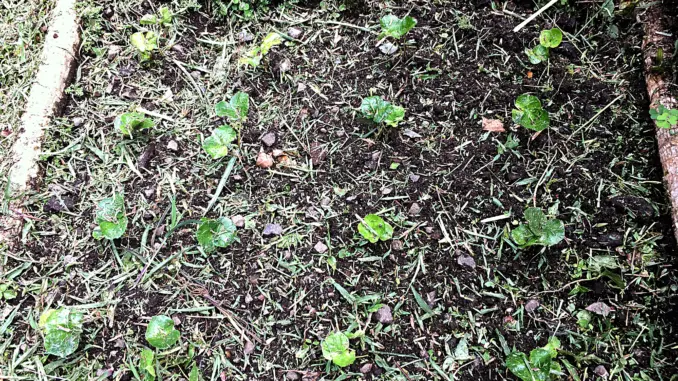
With an environmentally friendly and community-oriented approach to farming, Aquiares does a lot more than just cultivate coffee.
BY TANYA NANETTI
SENIOR ONLINE CORRESPONDENT
Photos by Tanya Nanetti
Visiting a coffee farm is a great opportunity to learn more about the people who grow our coffee beans, and the many variables of farming that affect how they grow.
Located in the rainy Caribbean part of Costa Rica, Aquiares is a high-altitude farm with a climate perfect for promoting abundant coffee blooms. However, as the largest coffee plantation in Costa Rica, it’s not just a coffee farm; it’s also a thriving community supporting a few thousand people.
What Aquiares Offers Its Inhabitants
In the 1990s, current owner Diego Robelo’s father, Alfonso, began selling houses to workers. He also built a free public school, health facilities, entertainment spaces, and more.
Today the community consists of 2,000 people, 170 of whom actively work on the farm; the rest of the community are the workers’ family members. Additionally, during the harvest season from December to May, 900 to 1,000 pickers come to work on the farm. About half of these workers come all the way from Nicaragua. During their stay, the farm provides them with housing, children’s education in the village public school, and medical care.
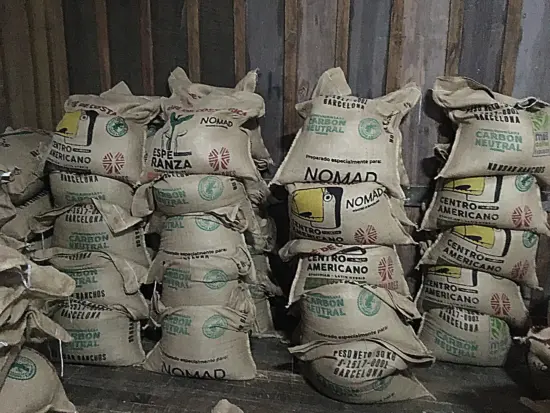
In recent years, tourism has helped create new jobs for the community, and a new neighborhood has sprung up with 45 new houses. The only (unwritten) rule here is to try to keep it local, preventing large crowds of expats from moving into the community.
Carbon Negative
Next, Diego told us about the sustainable aspects of the farm. As part of the Rainforest Alliance, Aquiares is not just a carbon neutral, but a carbon negative enterprise, removing more CO2 from the atmosphere than it emits. This is an impressive feat for a plantation of this size.
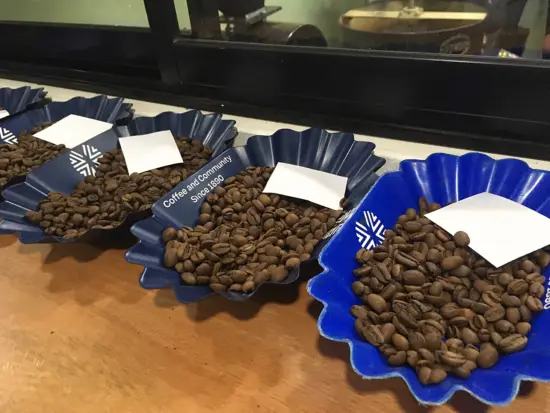
After lunch, Diego offered us the unique opportunity to spend the afternoon cupping some of the delicious coffees that will soon be shipped to Nomad Coffee, one of our favorite specialty-coffee roasters, based in Barcelona.
In between rounds of cupping, there was time for a brief chat about the future of Aquiares. Coming up ahead are exciting new projects, such as a group of women members who will soon produce essential oils from oregano, eucalyptus, and other plants grown on the farm. Exciting new challenges also await, such as planting cacao trees in the lower levels of the farm, which can no longer grow coffee.
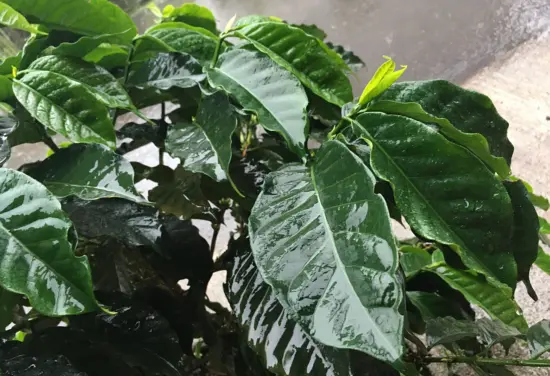
By the time the cupping ended, evening had descended. The torrential rain that began in the afternoon finally stopped, leaving us time for one last look at the beautiful valleys covered with coffee trees that make up Aquiares.
Then it was time to get back on the road. We know, thanks to everything we learned that day, that the next cup of coffee we drink will seem even more interesting and delicious.
ABOUT THE AUTHOR
Tanya Nanetti (she/her) is a specialty-coffee barista, a traveler, and a dreamer. When she’s not behind the coffee machine (or visiting some hidden corner of the world), she’s busy writing for Coffee Insurrection, a website about specialty coffee that she’s creating along with her boyfriend.
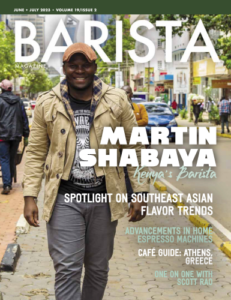
READ THE LATEST BARISTA MAGAZINE
Out now: It’s the June + July 2023 issue of Barista Magazine featuring Martin Shabaya of Kenya on the cover. Read it for free with our digital edition. Get your Barista Magazine delivered; start a subscription today! Visit our online store to renew your subscription or order back issues.



